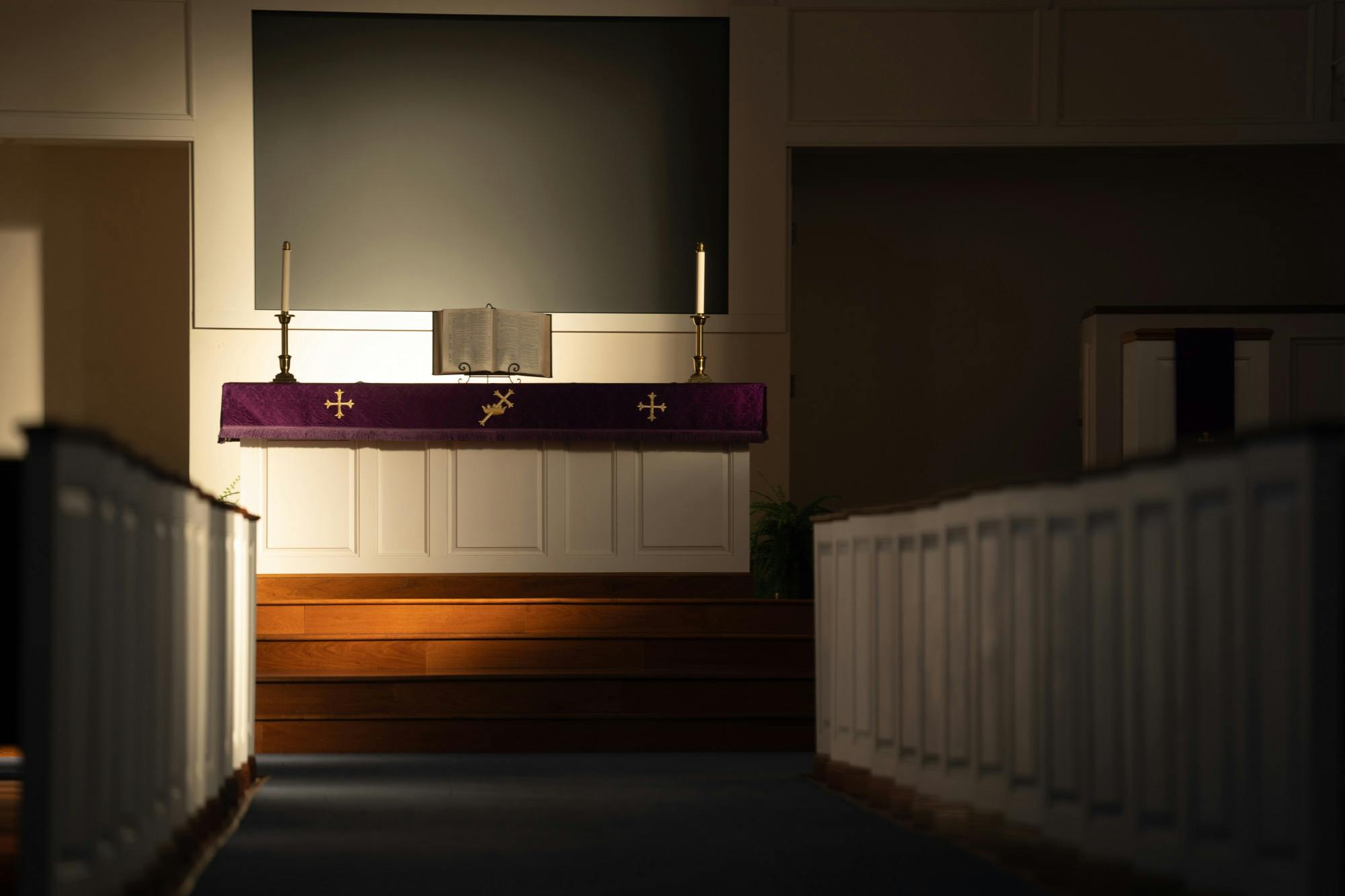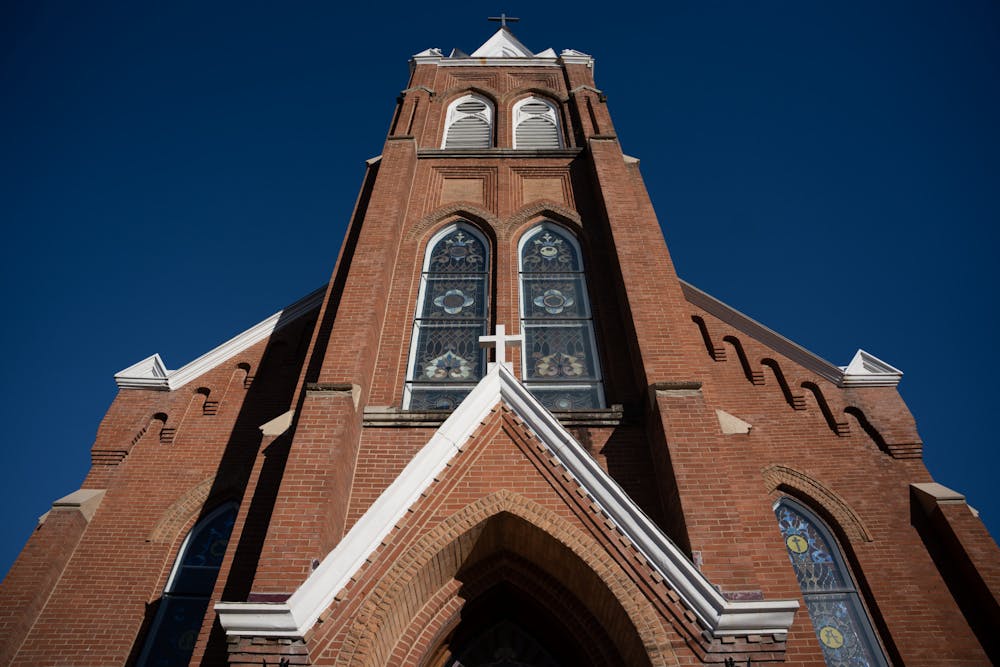Christians around the world will be embarking on a six-week long period of observance Wednesday, and Athenians are no different, also beginning the religious period by donning foreheads marked with ash.
Ash Wednesday is a solemn reminder of mortality, commonly observed by marking church attendees' foreheads with ashes.
Ash Wednesday also starts Lent, a 40-day period leading up to Easter Sunday that represents Jesus' time of temptation in the wilderness. According to Christianity.com, this period of time for Jesus included fasting and temptation, so Christians will mark the period of Lent by giving up something meaningful to themselves. Ash Wednesday is actually 46 days prior to Easter, but the period of 40 days does not include Sundays.
"(Lent) is supposed to be a time to deny ourselves and remind ourselves of our death in a sense," said Issy Martin-Dye, a sophomore studying journalism. "So to die to ourselves in a way, where we are giving up something that we normally rely on and lean on God for that, in a sense. So, people will give up caffeine because that's their energy source, and so they'll … lean on God more for energy instead of coffee. So it's really cool."
Martin-Dye said the holiday also involves fasting, typically in the form of two small meals and one normal-sized one. She said she would celebrate with her friends, many of whom are in the student organization OU Catholics. Martin-Dye said she found this group after renewing her connection with her faith the summer before college.
"I was always like, 'Catholicism's stupid,'" she joked. "Then I had a few experiences over that summer coming into college, and I was like, 'Whoa, this is actually so alive.' So then I was like, I need Catholic friends."
Ben Shaw, a sophomore studying pre-nursing, is also a member of OU Catholics. He participates as part of OU Catholics' core team or the group that leads ministry. Shaw also works in music and worship for the group.
"To make room for the Lord in my heart, what I'm giving up is burgers and pop, which are very much staples in my diet, as horrible as it sounds," Shaw said. "They're just definitely something I have a lot of, so if I make room in that, then I can make more room for the Lord."
Sophia Leasure, a sophomore studying journalism, has been participating with full commitment in Lent since she was 13 years old when she was old enough to grasp the significance. She is giving up meat for Lent this year because she knows it will be difficult.
"I know a lot of super traditional older Catholics, they don't eat meat during Lent … for the full 40 days," she said. "Living in my sorority house, we have meat in just about every meal, so I was like, this is a great act of sacrifice and penance for these next 40 days because the whole point of Lent is to like basically because Jesus suffered for us."
Leasure said she would also be fasting throughout Ash Wednesday until she receives her ashes. Some variation of fasting is common for the day, and Martin-Dye will have small, limited meals in her participation on Ash Wednesday.
For Lent, Martin-Dye is planning on giving up dairy and gluten, but she said she is also participating in picking something up to help her connect with her faith. She attends church once or twice a week, but during the period of Lent, she will be going four times weekly.
"I feel like that's the best thing I can be doing to further my spiritual life," she said.
Both Martin-Dye and Shaw will attend mass the evening of Ash Wednesday at Christ the King Church, 75 Stewart St., at the intersection with Mill Street. Martin-Dye said OU Catholics and the parish will host events throughout Lent.

She said they would be hosting Adoration more frequently during the period of Lent, adjusting to 12 hours of the service on Thursdays, from 9 a.m. to 9 p.m., instead of just one hour on Fridays. Adoration involves the Eucharist, the typically thin wafer of bread given out during Christian worship services. This is kept in the monstrance, typically a golden circle that resembles a sun and a cross.
Martin-Dye said during Adoration, the monstrance is kept out with the Eucharist in it. This is significant in the Catholic denomination, she said, as the difference that distinguishes Catholicism is the belief that Eucharist is Christ, whereas other denominations see it symbolically.
"We believe that the Eucharist is literally Jesus, like not physically because it's bread, but in essence, it is Jesus," she said. "So we believe his full presence is within that little host, which is a really radical claim."
Therefore, Catholics believe Christ is present with them when the Eucharist is present during Adoration. Martin-Dye said Adoration is her favorite thing she does to acknowledge her faith.
"Adoration is my favorite thing ever," she said.
Shaw said he is also looking forward to increased Adoration and felt grateful for his upbringing in the Catholic Church. While Lent will be an increase in worship for many practicing Christians, Shaw said his faith is a huge part of his personal and campus life year-round.
"Coming to OU, of course, as any freshman does, it's like your first independent step in your life," he said. "It was really interesting deciding whether I wanted to part ways with my Catholic faith or live it on my own. OU Catholics, I joined, and it immediately just felt like my family. It definitely is my home."
Editor-in-Chief






